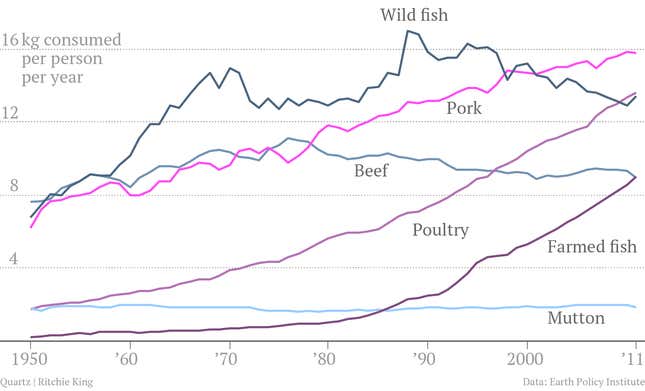Last month, scientists funded by Google’s Sergey Brin revealed to the world’s press a hamburger made from protein cells. It failed to pass the taste test, but its proponents promised that with work, it could become a viable substitute for beef. This week, another artificial food backed by technology billionaires has had its formal coming out party. Beyond Eggs, a powder that functions as a substitute for eggs in baked goods, has hit shelves in California, the Daily Mail reports. Unlike the frankenburger, people who have tried cookies made with the powder actually seem to like it. Paypal founder Peter Thiel is an investor and Bill Gates is a self-avowed fan.
Why are technology-industry elders ploughing their wealth into fake food? One reason is that having made it to the top of the pyramid in the hierarchy of needs proposed by psychologist Abraham Maslow, they are starting again from the bottom. Less facetiously, the quest to make fake food is driven by concerns about the world’s ability to feed itself, especially when it comes to meat.

We now produce seven times as much meat as in 1950. In that time, the world’s population has grown to 7 billion from about 2.5 billion. More pertinently, as millions in the developing world are lifted out of poverty, they demand and are able to afford better meals that include protein. Environmentalists and economists worry that by 2050, when the world’s population is projected to hit 9 billion, the earth may be unable to keep up with demand. Just yesterday, the European Parliament voted to limit the use of biofuels—petrol substitutes made from plant matter—due to concerns that it is driving up food prices (paywall).
Beyond Eggs (and Just Mayo, also made with the same fake eggs) is produced by a small start-up called Hampton Creek Foods. The firm is focusing its efforts not on replacing eggs for breakfast but on those people and companies that use them as an ingredient, a market that its founders say is worth $6 billion globally.
